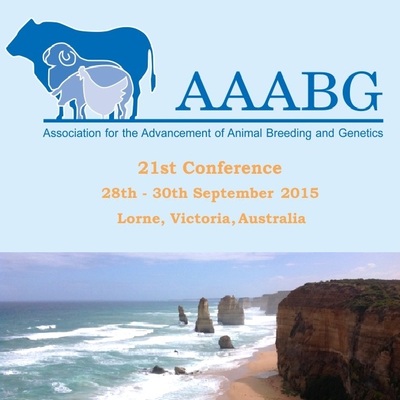Runs of homozygosity in Swakara pelt producing sheep: implications on sub-vital performance (#122)
Sub-vital performance is a phenotype in which some pure white Swakara sheep die within 48
hours of birth. Postmortem of sub-vital lambs have shown underdeveloped digestive organs. It is
hypothesized that due to high levels of inbreeding, Swakara sheep carry a recessive mutation that
affects some of the white fleece colour subpopulation resulting in the sub-vital production
performance. The genetic basis of the sub-vital effect is however unknown. The aim of this paper
was to use the Ovine SNP50K data to investigate inbreeding levels and occurrence of ROH in the
Swakara sheep genome in order to uncover the genetic basis of sub-vital performance. Runs of
homozygosity (ROH) are long stretches of contiguous DNA fragments that are homozygous and
occur due to parents transmitting similar haplotypes to their offspring through shared ancestry.
Long stretches of ROH observed in SNP markers indicate probable underlying stretches of DNA
inherited identical by descent from recent common ancestors. The aim of the study was to screen
for extended ROH shared across animals, estimate levels of inbreeding using ROH and infer
association with sub-vital performance which could indicate regions associated with the sub-vital
mutation. Ninety-four Swakara individuals that belonged to the grey (n =22), black (n=15) and
white vital (n = 41) and white sub-vital (n=16) were genotyped using the OvineSNP50 beadchip.
Four hundred and thirty six unique ROH regions that spanned between 1001 to 6594 Kb were
observed on the 25 chromosomes in 94 individuals of the four colour subpopulations. Three
consensus ROH (cROH) were more prevalent in sub-vital Swakara sheep. Results suggested
alternative genetic mechanisms to sub-vital performance other than was initially hypothesised that
sub-vital performance was due to recessive mutations prevalent in inbred white Swakara sheep.
 AAABG 2015*
AAABG 2015*